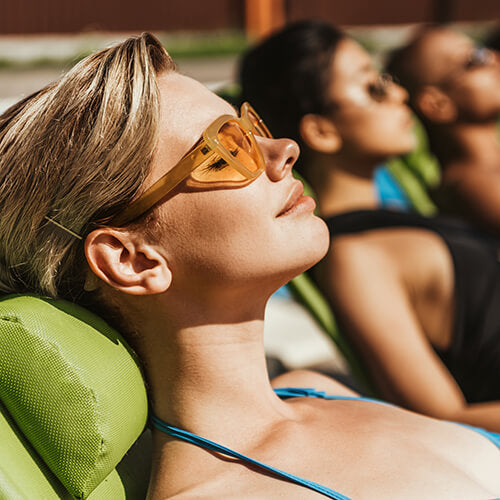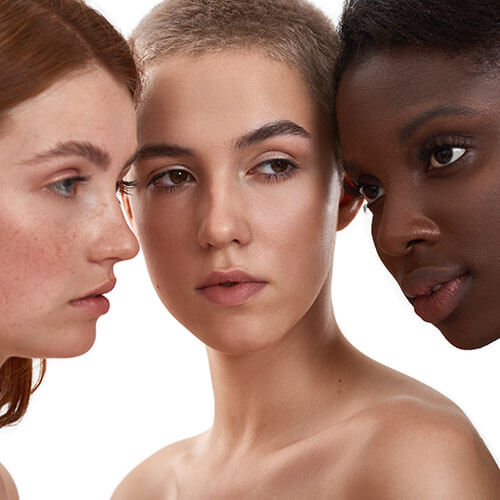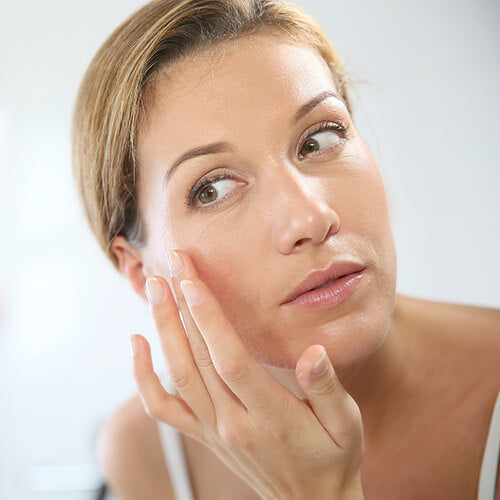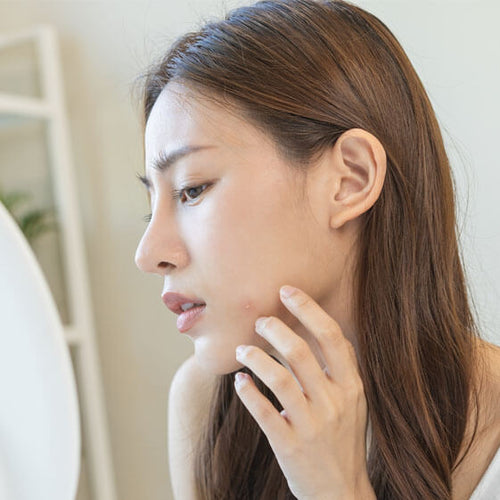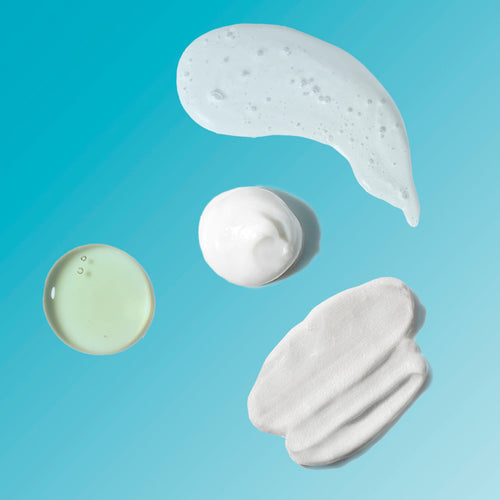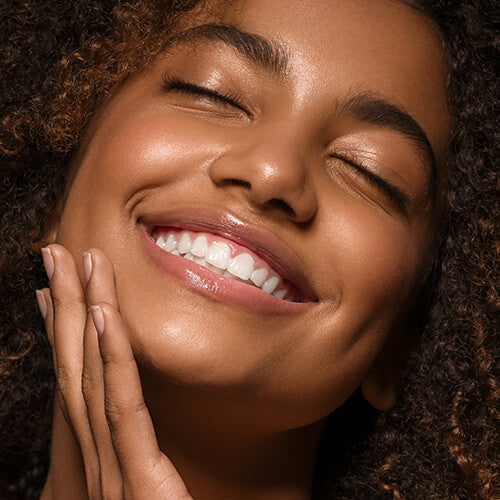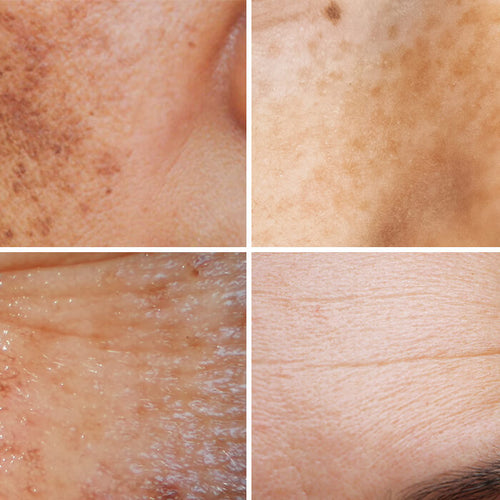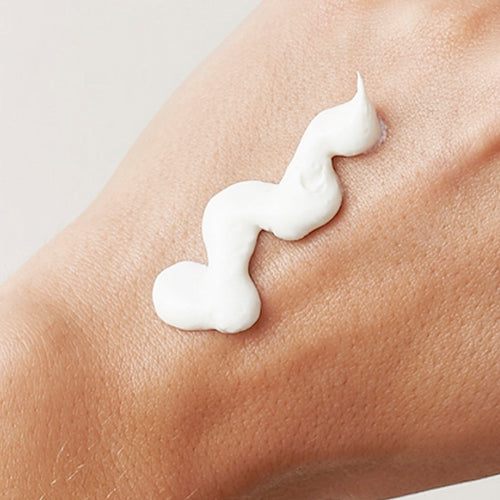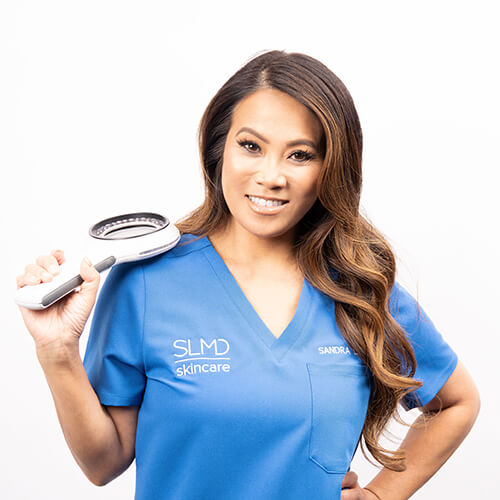
Dr. Pimple Popper's Perspective: Sunscreen
Your favorite dermatologist explains SPF, UV rays, breakouts — and what to look for in a sunscreen.
Published:
3 minute read
Unless you’re living in a cave — literally — you probably know that sunscreen is essential for skin health. But even with all the awareness, many people still have questions: Do you really need it every single day? Does the type of sunscreen matter? And is higher SPF always better?
We turned to board-certified dermatologist and SLMD Skincare founder Sandra Lee, MD (aka Dr. Pimple Popper) to set the record straight.
Why is sunscreen so important?
Dr. Lee: Let’s back up a minute and talk about UV rays, and how they damage your skin. There are two types of ultraviolet radiation from the sun:
- UVA rays penetrate into the dermis and are responsible for the long-term damage we call photoaging — like wrinkles, hyperpigmentation, and loss of elasticity.
- UVB rays are shorter in wavelength and only reach the epidermis — these are the ones that cause sunburn.
Both cause DNA damage when they penetrate your skin. Our bodies try to correct that damage, but sometimes it’s just too much. That’s how you end up with things like skin cancer. Sunscreen acts as a shield to help prevent that UV radiation from harming your skin.
Related: What UV Radiation Really Does to Your Skin
How does sunscreen work?
Dr. Lee: There are two main categories of sunscreen, and they work a little differently:
- Mineral (physical) sunscreens like titanium dioxide and zinc oxide primarily reflect and neutralize UV rays.
- Chemical sunscreens like avobenzone mostly absorb and neutralize UV radiation, converting it into heat.
Whether you choose mineral or chemical is mostly about preference — though for pregnant women and young children, dermatologists usually recommend mineral. I always say, the best sunscreen is the one you’ll actually use every day.
Related: Chemical vs. Physical Sunscreen: Which Is Better?
What does SPF really mean?
Dr. Lee: People often think SPF tells you how long you can stay in the sun without burning — but that’s not quite right, because everyone's skin is different. It’s better to think of it this way: SPF 15 blocks about 93% of UVB rays. SPF 30 blocks about 97%.
But SPF only measures UVB protection — not UVA. That’s why you need to look for broad spectrum on the label, like SLMD Daily Moisturizer with SPF 15. That means it protects against both types of UV rays.
Related: SPF, Explained
Should you wear sunscreen every day?
Dr. Lee: The short answer is yes. Even if it’s cloudy. Even in the winter. Even indoors — because UV rays can pass through windows.
Remember, it’s not just about avoiding sunburn. It’s about preventing cumulative damage: discoloration, wrinkles, even skin cancer. So yes, apply sunscreen every morning.
And yes — you do have to reapply. UV radiation breaks down the active ingredients in sunscreen over time, especially with sweating or swimming. So reapply every 2 hours if you're outside.
Related: Do You Really Need to Reapply Sunscreen?
How much sunscreen do you need?
Dr. Lee: This one surprises a lot of people — most of us don’t use enough. I use about two finger lengths of my SLMD Daily Moisturizer with SPF 15 for my face, neck, and ears.
You also need to apply it to the backs of your hands, because that’s one of the first places we see signs of aging. And don’t forget behind your ears — it’s a common spot for sun damage and skin cancer to develop.
Related: 10 Sunscreen Mistakes You Didn't Know You Were Making
Can sunscreen make you break out?
Dr. Lee: If you have acne-prone skin, yes — some sunscreens can clog pores. That’s why it’s important to look for something that’s non-comedogenic and lightweight.
That was a big priority when we created SLMD Daily Moisturizer with SPF 15. It’s a moisturizer-sunscreen hybrid with antioxidants like vitamin E and green tea, designed for all skin types — especially oily or acne-prone.
Related: Can Sunscreen Make Acne Worse?

Dr. Lee's Last Word
Sunscreen is one of the most important products in any skincare routine — whether you’re 15 or 50. When used daily, it protects against visible signs of aging and serious concerns like skin cancer. The best sunscreen is the one you’ll use — every single day.







